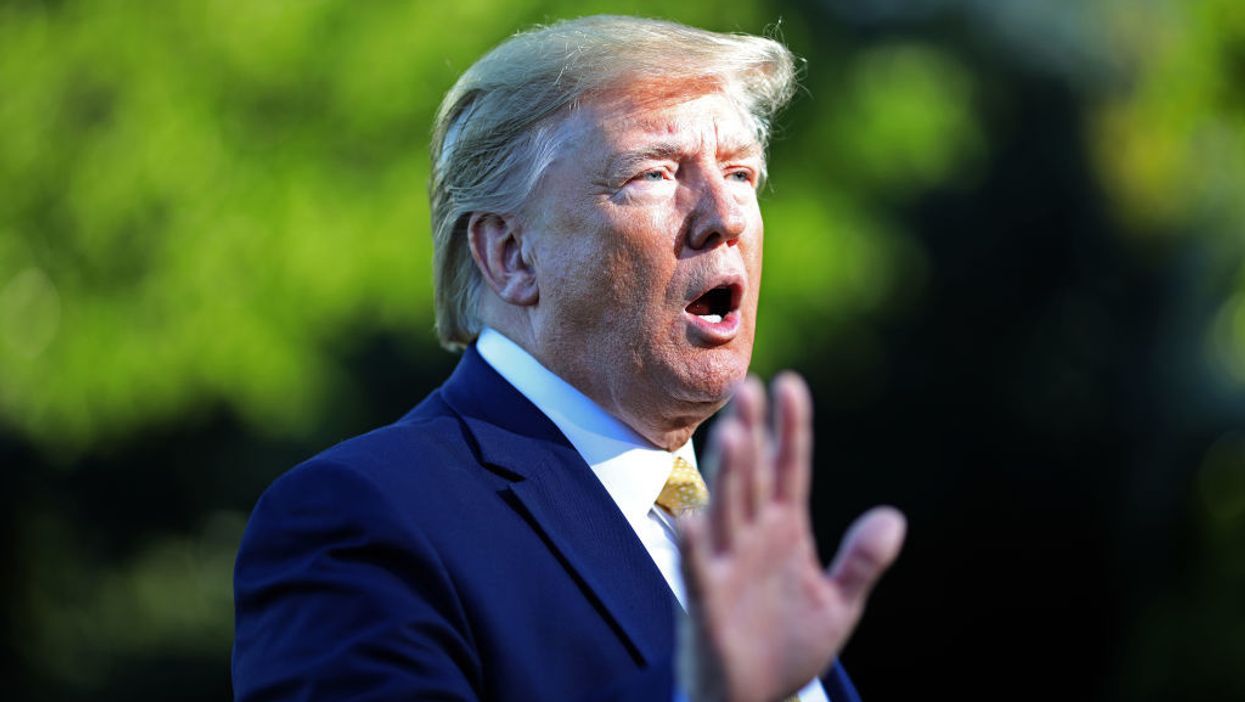The House of Representatives is asking a federal judge to dismiss a lawsuit by President Trump seeking to prevent the House's majority Democrats from getting their hands on the president's New York tax returns.
The request by the House late Monday is the latest volley in what's arguably, besides impeachment, the most consequential current balance-of-powers fight between the legislative and executive branches.
Acting as a private citizen, Trump filed the suit in July in federal court, looking to shortcut any effort by the House Ways and Means Committee to use a freshly enacted New York law to obtain the state returns.
Earlier this month in a separate case, a federal judge dismissed Trump's effort to prevent the president's state returns from being turned over to a New York grand jury. Trump's efforts to get that ruling reversed will be argued Wednesday before the 2nd U.S. Circuit Court of Appeals. No matter the outcome, the dispute is almost surely headed to the Supreme Court.
Presidential candidates and presidents have traditionally revealed their tax returns in the name of transparency, but Trump has refused to release his. Proposals to mandate that presidential nominees release their federal 1040s have become a standard part of democracy reform proposals. Such a requirement was included in HR 1, the comprehensive government reform bill passed by the House along party lines in March.
The House's lawyers argued in their filing Monday that Trump's claim should be dismissed because the Ways and Means Committee has not yet asked for the president's New York returns and has not decided whether it will.
"Mr. Trump does not and cannot allege that he is suffering harm," the dismissal request states.
The House lawyers also argue that any president is banned by the Constitution from interfering in the affairs of another, co-equal branch of government.
In filing the suit against the House, Trump's attorneys argued that waiting until a request for the tax returns is made could be too late — they could be disclosed before the president had a chance to be heard in court.
While keeping its options with New York open, the Ways and Means panel has focused more intently on getting access to six years of Trump's tax returns directly from the IRS and its parent, the Treasury Department. Democrats say the committee has a clear right to see Trump's filings under a seldom-invoked section of the tax code that says Treasury "shall furnish" the committee with "any" tax information it seeks about any American citizen.
Administration officials rebuffed a subpoena for those returns this spring, saying they would not help the Democrats with a fishing expedition that lacked a legitimate policy making purpose. The House has now gone to federal court on that matter, as well, arguing the law gives the House total leeway to decide what it needs and why




















Trump & Hegseth gave Mark Kelly a huge 2028 gift